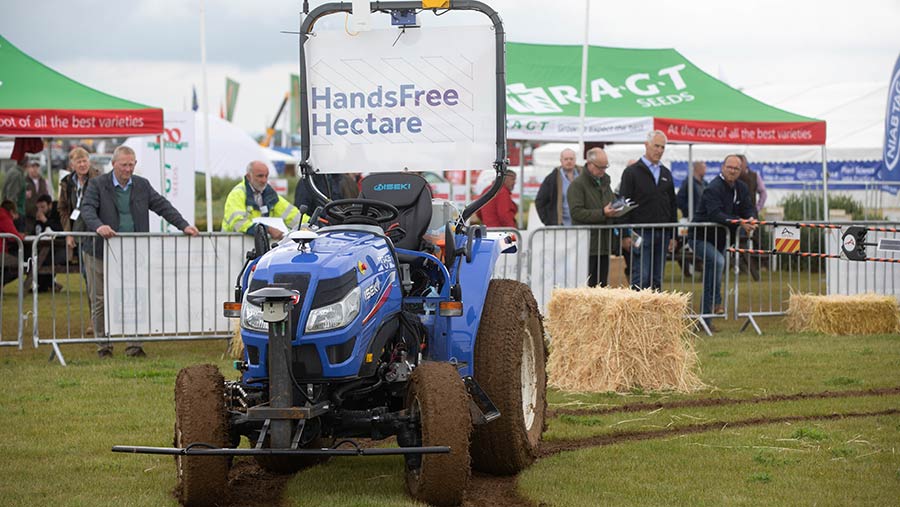£22m spending to raise food output and cut pollution
 © Tim Scrivener
© Tim Scrivener Lifting food production and cutting down on waste and pollution are the prime objectives of a £22.4m investment package announced by government and targeted at the farming community.
The money will benefit some 31 projects and forms part of the £90m Transforming Food Production Challenge, a part of the government’s Industrial Strategy, which commits to raise research and development to 2.4% of gross domestic product by 2027.
Industry partners will be putting in a further £8.8m of their own money.
See also: Can Agri-Tech deliver new ‘golden age’ for farmers?
The biggest single grant under the programme is £2.44m, going to Northern Ireland-based food company Dunbia to develop a beef data bank.
Covering the whole beef supply chain, it will involve the development of a data platform, pooling data to help avoid disease, raise business performance and improve product quality.
Grants of more than £1m
Another five projects have been selected to receive grants of more than £1m, as follows:
- £1.24m to develop a fleet of autonomous soft fruit robots (Saga Robotics, Berry Gardens Growers, Fotenix, University of Lincoln).
- £1.58m to develop a “hands free” farm at Beningbrough, Yorkshire (Precision Designs, Agri-Epi Centre, Farmscan Ag, Harper Adams University, N Blacker & Son).
- £1.28m to develop a “big data” system for the beef cattle supply chain (Hall Mark Meat Hygiene, Agri-Epi Centre, David Ritchie Implements, Harbro, Hectare Agritech, Innovent Technology, NPL Management, Randall Parker Foods, Scotbeef, SRUC).
- £1.19m to develop a fertiliser decision tool, to optimise fertiliser uptake and reduce releases to the environment (Plant Bioscience, John Innes Centre, Zimmer and Peacock).
- £1m for artificial intelligence (AI) to ensure only “at risk” crops are treated with crop protection products (IBM, 2 Excel Geo, Rothamstead Research, STFC Laboratories, Syngenta, University of Sheffield.
Other companies and partnerships to benefit include:
• Rootwave, Warwickshire, which will use a £690,000 grant to further develop its product, which uses electricity instead of chemicals to kill weeds through the roots.
• Tuberscan, Lincolnshire, who will use £391,000 to develop ground penetrating radar, underground scans and AI to monitor potato crops and identify when they are ready to harvest.
• A project in Middlesex which will use a £233,000 grant to help cows graze without farmer supervision by placing sensors on farm gates that communicate with GPS trackers on the animals to open and close gates.
Leading the way
“The projects announced today will ensure we lead the way in supporting our vital farming industry, delivering high quality food for consumers while reducing the wider environmental impact,” said science minister Chris Skidmore.
Some of the projects would help the UK on its way to achieving net zero carbon emissions by 2050.
Defra farming minister Robert Goodwill added: “Agri-tech can help us address the biggest challenges facing the agriculture industry, such as eradicating crop pests and diseases for arable farmers without harming the wider environment.
“In 2018 we saw the total value of agri-tech investment worldwide skyrocket to $17bn – an increase of 40% on the previous year.
“Today’s funding will enable more investment in new technology, helping lead to scientific breakthroughs that could transform the sustainability of global food supply chains.”
